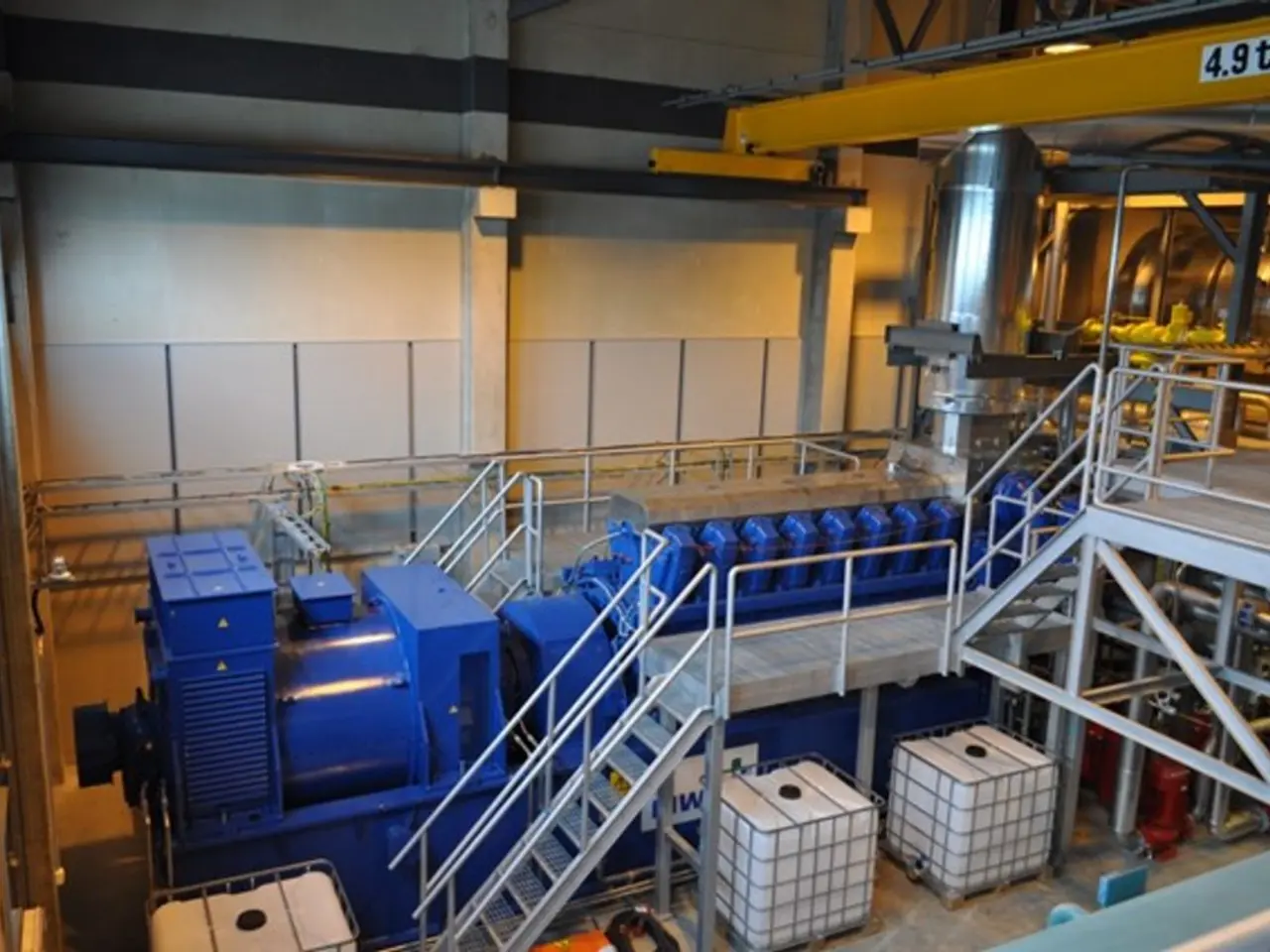U.S. manufacturing facilities may face financial strain and price increases of up to 4.5% due to Trump's imposed tariffs, according to a fresh evaluation.
In the realm of U.S. manufacturing, President Donald Trump's tariffs have stirred a wave of economic and political impacts. One such example can be seen at Montana Knife Co., a company facing increased costs due to Trump's tariffs on products from the EU.
Josh Smith, the founder and president of Montana Knife Co., has expressed concerns about Trump's tariffs on foreign steel and other goods. Smith recently ordered a $515,000 machine from Germany, designed to grind his knife blades to a sharp edge. Unfortunately, these tariffs will result in a $77,250 tax on the machine.
Smith had attempted to circumvent these costs by buying a year's worth of steel in advance, but starting in 2026, the specialty steel he'll be importing from Sweden is set to be hit with a 50% duty.
The tariffs have increased factory costs for many domestic manufacturers. For instance, tariffs on aluminum have raised packaging costs for beverage producers, squeezing profit margins.
Moreover, these increased costs lead firms to reduce hiring or cut jobs to control expenses. The unpredictability of tariff policy discourages investment in expanding production capacity or workforce, undermining business confidence and leading to employment declines in affected sectors.
U.S. firms may also experience supply chain disruption, as they attempt to stockpile inventory to avoid higher tariff costs, which can inflate GDP figures temporarily. However, sustained tariffs slow investment and shift supply chains away from the U.S., further weakening manufacturing employment and growth over time.
Tariffs have also strained diplomatic and trade relations with major partners like Canada, Mexico, the EU, and Japan, as well as emerging markets. This has led to retaliatory tariffs, decreasing exports and harming politically important manufacturing constituencies.
The uncertainty and unpredictability of tariff policy create tensions domestically and internationally, complicating negotiations and trade agreements. This political instability limits long-term planning by manufacturers and may contribute to a decline in U.S. relevance in global trade relations.
Ernie Tedeschi, director of economics at the Budget Lab at Yale University, stated that import prices have accelerated in recent months. Justin Johnson, president of Jordan Manufacturing Co., also shared his concerns, stating that the company, founded in 1949, has seen a 5% to 10% increase in the price of a key raw material - steel coil - this year.
Trump's tariffs have crippled foreign competition, according to Johnson. However, this has not been without consequence. The latest estimate from the Budget Lab at Yale is that the tariffs would cause the average household to have US$2,400 less than it would otherwise have.
Montana Knife Co. used to buy the powdered steel it needs from Crucible Industries in Syracuse, New York, but Crucible declared bankruptcy last December, and its assets were purchased by a Swedish firm, Erasteel, which moved production to Sweden. Now, Smith must look to Germany for his bevel-grinding machines, as there are only two companies in the world that make them, and they're both in Germany.
In conclusion, Trump's tariffs increase manufacturers' costs, reduce wages and manufacturing jobs through lower competitiveness and investment, and create political challenges both domestically and internationally by disrupting trade partnerships and increasing economic uncertainty.
- The tariffs imposed by President Trump on foreign goods, such as steel, have significantly increased costs for domestic manufacturers like Montana Knife Co., leading to a tax of $77,250 on a $515,000 machine ordered from Germany.
- The unpredictability of tariff policy discourages investment in expanding production capacity or workforce, causing employers like Ernie Tedeschi, director of economics at the Budget Lab at Yale University, to express concerns over potential job losses and declines in U.S. manufacturing employment.
- The tariffs have strained diplomatic and trade relations with major partners like the EU, causing retaliatory tariffs, a decrease in exports, and harm to politically important manufacturing constituencies, such as the sports equipment industry in countries like Japan.




